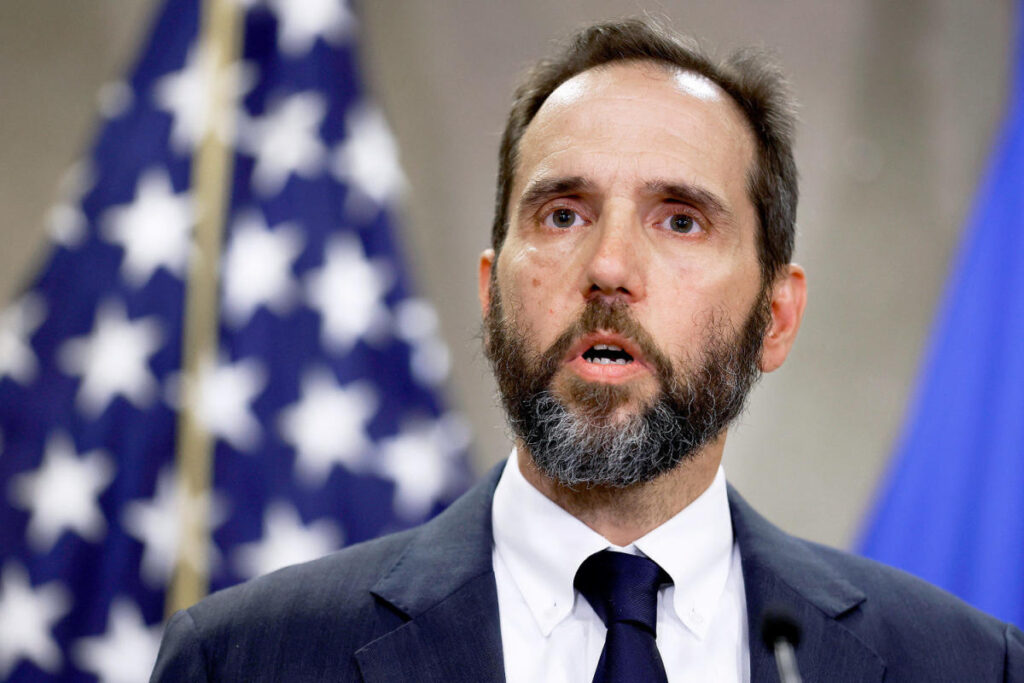On Thursday, former President Donald Trump announced that if he secures a second term in the upcoming November elections, one of his first actions would be to fire special counsel Jack Smith. Smith has been responsible for bringing two federal indictments against Trump, which has resulted in heightened tensions between the two figures. In an exchange with conservative radio host Hugh Hewitt, Trump stated, “It’s so easy — I would fire him within two seconds,” demonstrating his disdain for Smith, whom he referred to as a “crooked person.” Trump also mentioned that he believes Democrats would avoid impeachment should they regain a House majority after a potential firing of Smith from the Department of Justice.
The implications of firing Smith could significantly impact the ongoing legal cases against Trump. Although Smith has appealed a ruling related to the classified documents case in Florida, he continues to pursue the election interference case in Washington, D.C. This latter case has been complicated by Trump’s previous claims of presidential immunity, which were ultimately considered by the Supreme Court, resulting in procedural delays. As of now, no trial date has been established for the election interference case, and the circumstances surrounding it remain fluid.
Recently, Judge Tanya Chutkan permitted the release of several heavily redacted documents that contain evidence relevant to the prosecution’s case. Trump reacted strongly to this development, labeling Chutkan as “the most evil person” and Smith as “a sick puppy.” He further criticized the document release as “election interference,” embodying his ongoing narrative against the legal actions taken against him. This ongoing vitriol led to the imposition of a gag order by Chutkan, which restricts Trump from making public statements about potential witnesses and the federal prosecutors involved in the case.
Trump’s disparaging remarks about Smith and Judge Chutkan are of particular concern, as they pose risks of inciting chaos during legal proceedings. In a prior statement, Trump suggested that if he reclaims the presidency, Smith and others at the Justice Department would perhaps face dire consequences, indicating a willingness to engage aggressively with the legal system. This confrontational style underscores the precarious nature of Trump’s legal challenges and his approach to managing them should he return to the Oval Office.
In anticipation of possible actions by Trump against ongoing criminal prosecutions, Democratic Representatives, led by Adam Schiff, have introduced new legislation aimed at preventing a sitting president from dismissing active criminal cases against themselves. This measure, however, is unlikely to gain traction in the Republican-controlled House, reflecting the partisan divide regarding Trump’s legal issues. Such legislative moves signify the growing concern among his opponents about the potential use of presidential power in managing personal legal conflicts.
As Trump continues to dominate headlines with his provocative statements and strategies regarding his legal woes, the intersection of politics, law, and personal ambition remains a focal point of national discourse. The upcoming election not only holds significant implications for his political future but also for the various legal challenges he faces, including the cases brought forth by Jack Smith. Regardless of the outcome of the elections, these legal matters will likely play a critical role in shaping Trump’s legacy and the future of the Republican Party.

